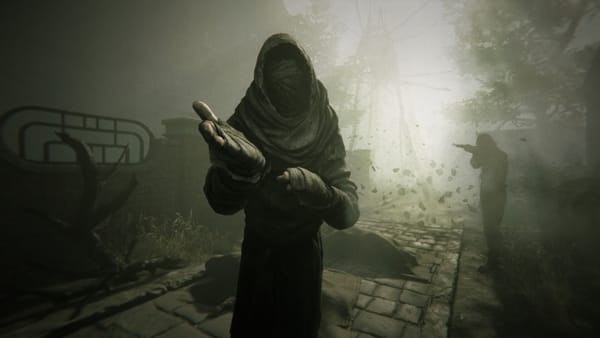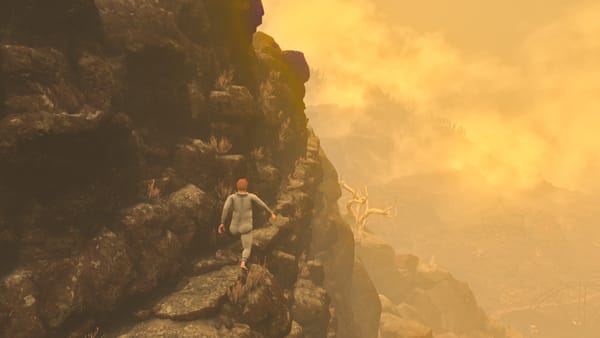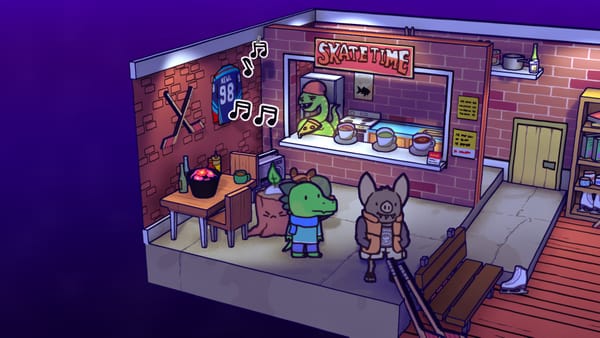"Love Is Terrifying"
Sorry We're Closed's slower pace showcases love for what it is: beautiful and life-affirming; toxic and terrifying.
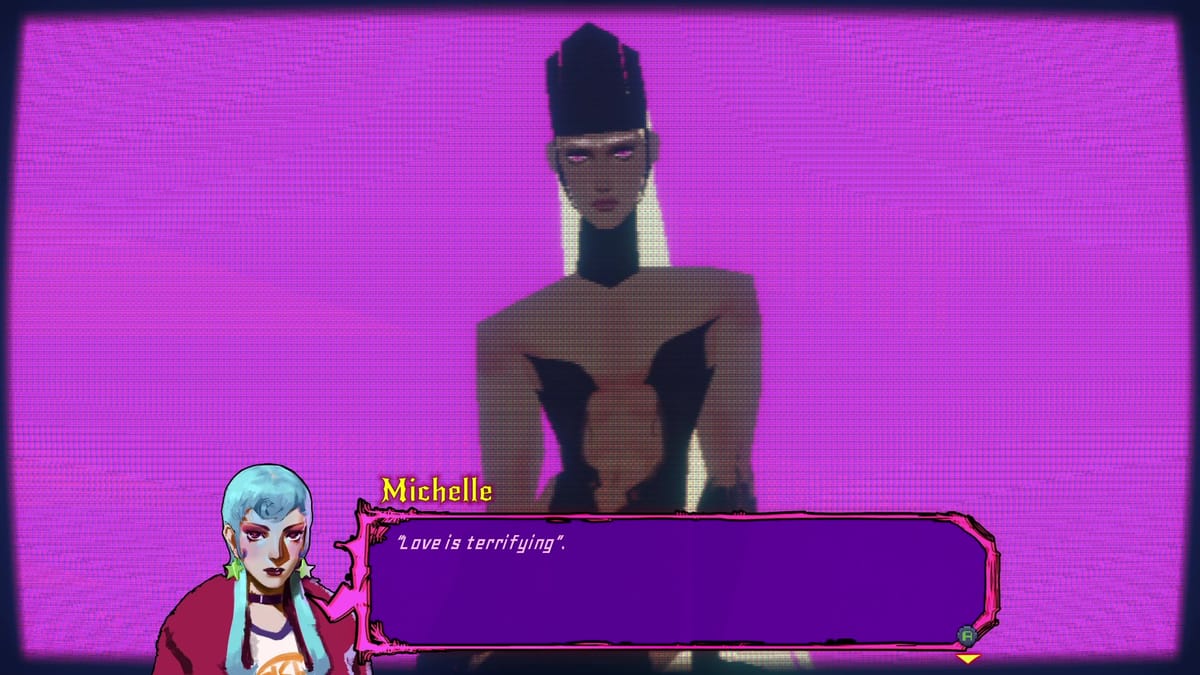
When I was a child, I never thought I’d feel more fear than the first time I looked over a bridge. I was terrified by the height threatening to swallow me. The wind whipping around as if it wanted to sling me off. The inevitability of gravity. I began to dread bridges, or anything that didn’t keep me close to the ground. Back then, you couldn’t bribe me to get on a rollercoaster even with all the sweets in the world. Heights weren’t the only fear I had, but they dominated the top spot for a long time.
Then I experienced the time before I knew a crush liked me back, or at all. The moments before a first kiss. The weeks, if not months, of trying to avoid screwing up. The hours before I knew a partner was okay. The dread before what might be a last kiss. And the time after. And all the other events born from the feeling that made heights and monsters and anything fitting inside a nightmare seem tame: love.
Love makes people do crazy things, as anyone who has delved into the survival horror genre of games can attest. Love caused Resident Evil 7’s Ethan to endure bloodthirsty, barely human families in backwater swamps. Love, or what it left behind, inspired Silent Hill 2’s James to survive misty towns full of horrors doubling as mirrors into his subconscious. There are more than a few stories where rose-colored vision has catalyzed tales of danger. However, these games often do not use the all-powerful feeling to scare players. It’s an important factor, but exists largely as set dressing for the thrill ride of grotesque and powerful enemies, what’s-behind-that-corner encounters, and overall feeling of helplessness that the survival horror genre incurs through gameplay. It is the departure from this formula that makes queer survival horror Sorry We’re Closed stand out from the bunch.
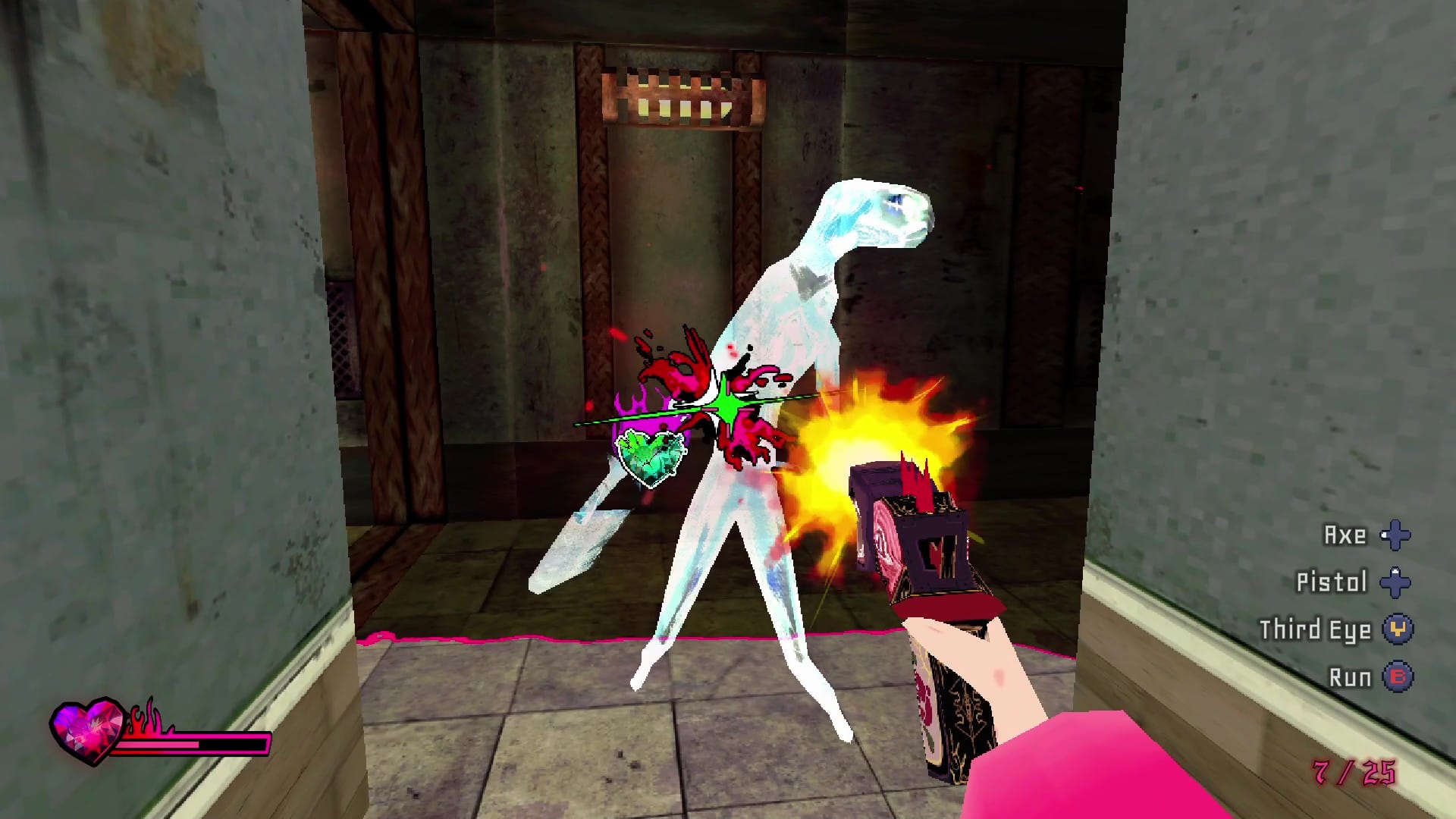
The debut title from a lá mode games shares several mechanics seen in survival horror games. Fixed camera angles highlight the protagonist Michelle’s increasing loss of agency and sense of smallness among the celestial forces she’s found herself at the center of. She faces monsters barely within imagination, using limited resources (depending on your difficulty level) as she attempts to break free from the archdemon The Duchess' curse on her. The switch to a first-person perspective in combat births tension that one can only find when facing demons with too many sharp teeth and claws. It has rooms where wit rather than bullets will keep death at bay just a bit longer.
But the game is quick to reveal distinctions from its genre mates. Notably, its most interesting puzzles are not environmental, but social. Sorry We’re Closed contains multiple endings, all of which depend on how you navigate the relationships you encounter. You will make decisions that impact whether the shirtless blonde, partially responsible for Michelle’s predicament, gets engaged to the local diner owner, or if your best friend, who turns out to be a demon, can finally be with the angel they’ve been in love with for eons, or if another celestial couple can break their lethal cycle of stagnation. Fans of visual novels may find a surprising amount of crossover in the way this game unfolds its consequences, as well as in its explicit presentation of choices as text boxes. This is in addition to the heavy amounts of dialogue that I found equally interesting as Michelle’s more action-heavy moments.
While all this creates an experience slower than one might expect from a genre associated with high-energy scares, be wary of expecting an easier time emotionally. This game can leave viewers closer to feeling like they just finished I Saw The TV Glow rather than Friday The 13th. Although unlike the former, it is the inevitability of change, rather than resistance to it, that will make you feel something twist inside by the end of it. What’s engrossing about Sorry We’re Closed’s characters is that you spend a lot of time with them, meaning you hear how love has created the good, bad, and very ugly in their relationships.
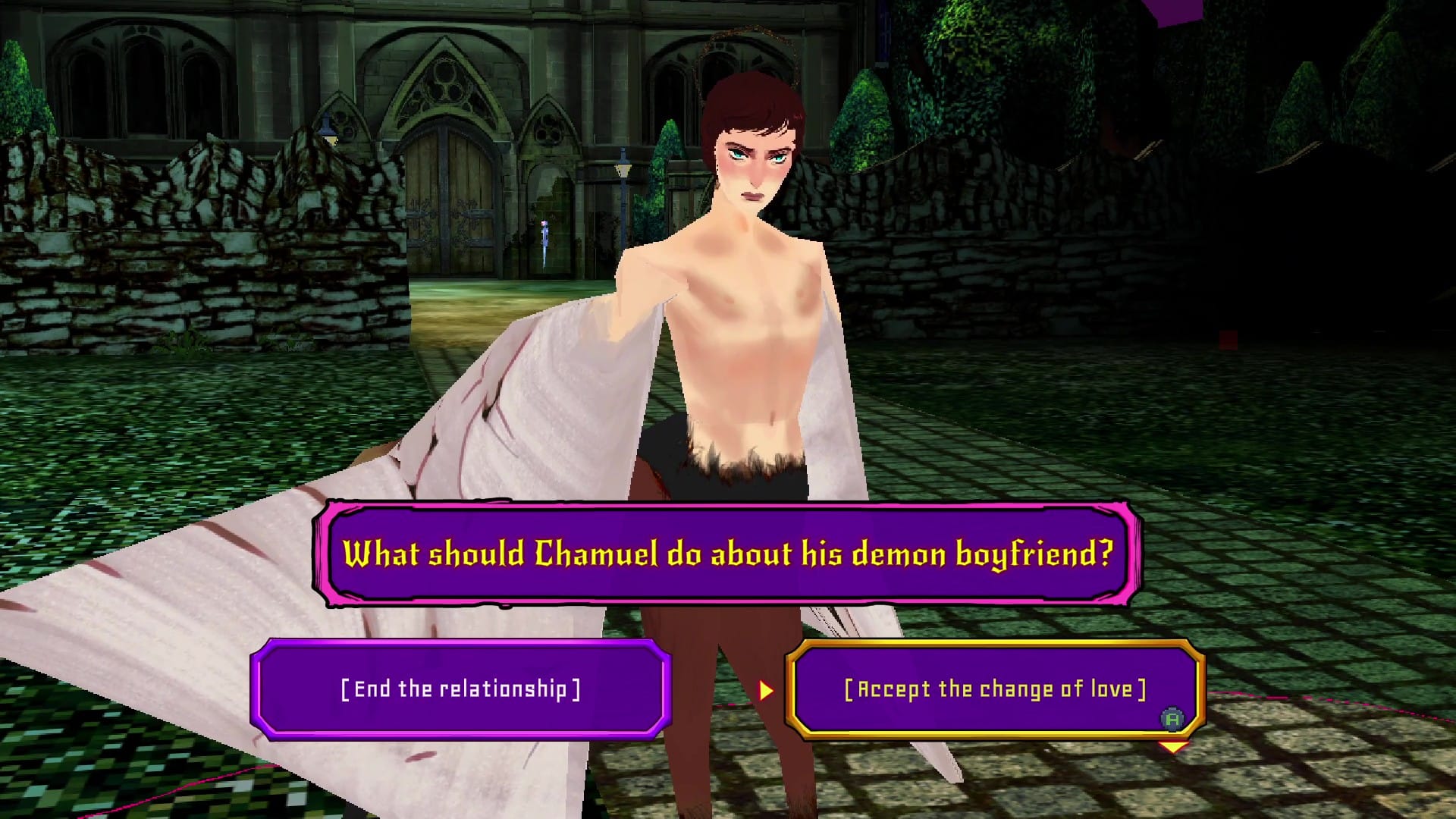
For example, town menace Darrel and diner owner Oakley are infatuated with each other. There is not a single moment where their love is in question, but the same cannot be said for the relationship’s sustainability. Oakley has shot down Darrel’s marriage proposals more than once because he wants Blondie to get his act together. And it’s a big act. On top of failing to properly help Oakley with his diner, Darrel is in direct cahoots with The Duchess, who also thinks Darrel isn’t meeting their otherworldly standards. For all his bravado, Darrel spends much of this game as a disgruntled errand boy for different parties that have him whipped romantically, or could have him whipped physically for eternity.
While I am sympathetic to the tightrope Darrel walks in helping his boyfriend and an archdemon who uses infatuation as an excuse to torture people, when they even bother to find an excuse, Darrel is also a gigantic asshole. He actively bullies other townspeople. Knowing Michelle’s plight, he nicknames her “Dead Girl” because he sees her fate as sealed and of little importance to him. He treats the employees of the bar he runs badly enough for one of them to plot a coup. Darrel has a complete disregard for anyone who isn’t Oakley and lets it be known. He would do anything for his lover — and the implications he makes of what would happen without Oakley in his life can make the skin crawl. While you can take the relationship a couple of ways, even making Darrel somewhat less awful, it's clear that love already allows him to do horrifying things on his best days.
Or, find a different brand of visceral unease when looking at the relationship between the demon/Michelle’s best friend, Robyn, and the angel Benedict. These two have wanted to be together for a nauseating number of years, but circumstances have made it difficult. Benedict’s particular rung on the heavenly ladder has left him with the responsibility of guarding a door at the town church. Behind that door are demons with just as much power, if not more, than The Duchess. Leaving this post would not just get Benedict in trouble, but could spell doom for many people. However, Robyn doesn’t accept this status quo. Long before they even met Michelle, Robyn was dedicated to finding something, anything, that could relieve Benedict from his post without the massive consequences. Benedict has watched this obsession take over his love’s life, as well as put it in potential danger for a time only he could have any chance of calculating.
And somehow, Robyn’s centuries-long endeavor may not be the most concerning part. It turns out love is an incredibly dangerous element for celestial beings, but especially when it’s between an angel and a demon. The results vary, but are always life-altering. In some cases, it turns them into humans, a prospect that can be horrifying to many celestials and, frankly, players who’ve done enough living to know what the world does to an unprepared soul. In other cases, if the demons and angels around town are to be believed, it causes an unyielding and multi-faceted pain that could only be described as torture. So even if Robyn is successful in her quest to liberate Benedict (spoiler alert: you’ll play a part in how that “if” goes), there is no guarantee that the future is more roses than thorns.
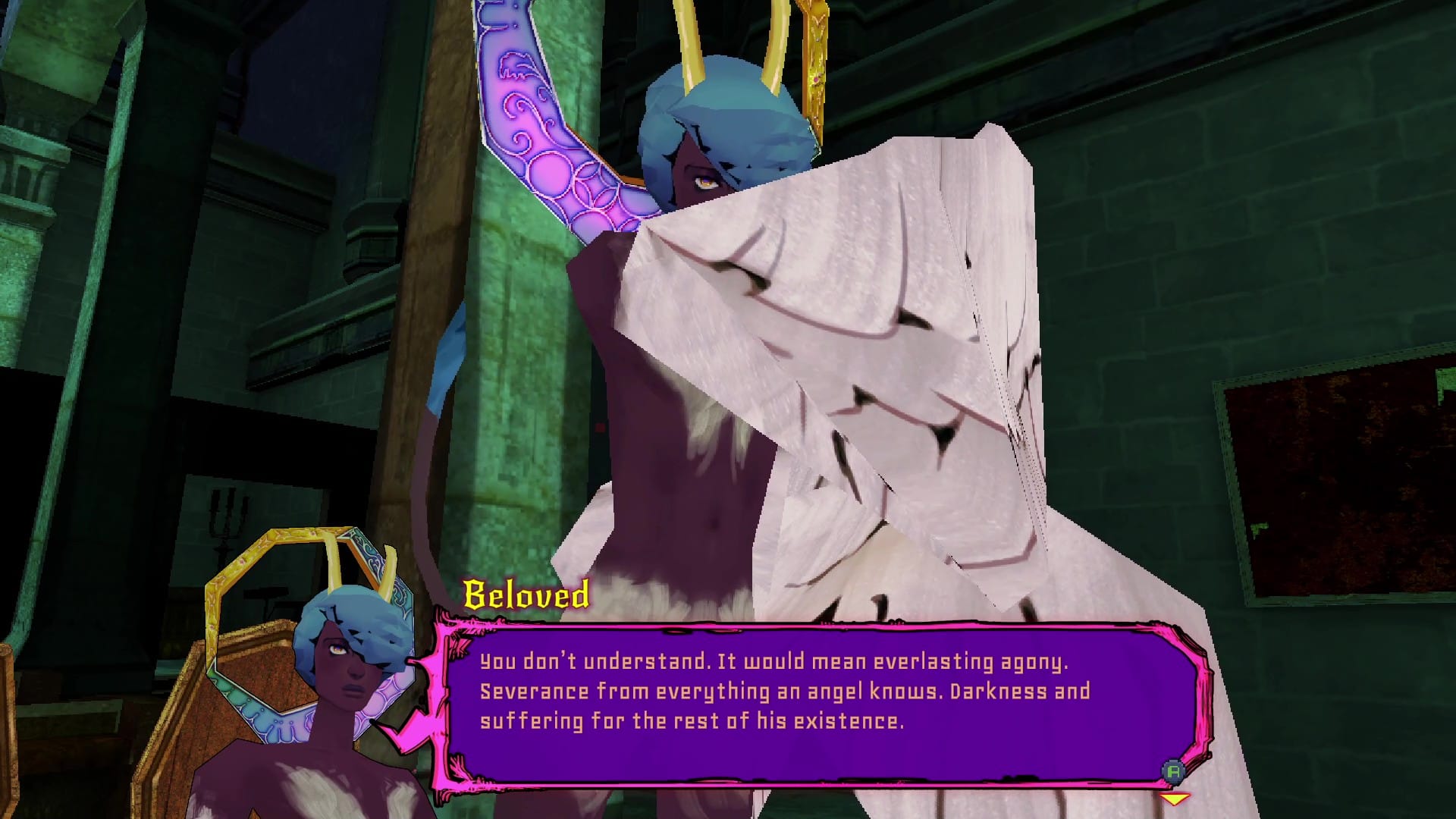
There are other relationships that could be discussed here. Even Michelle’s break-up with her ex Leslie has lessons about love, particularly on the stagnation born from heartbreak (and who you might rebound with against your better judgment). But regardless, the same theme persists. After spending time learning about all the humans, angels, and demons in Michelle’s town, it becomes clear that nothing scares these beings like love. Love can change anyone and anything, for better and worse. Something or someone will get destroyed in the process.
The slowness of the game is integral to getting this message across. If players so choose, it’s easy to spend just as much time talking to characters as can be spent slaying demons. Honestly, if you know what you’re doing on a second playthrough for the combat portions, you might be chatting demons up more than shooting them down. That time does not undermine the sinister feeling underpinning Sorry We’re Closed, but instead hardens it. Because, while the game does have its tense action moments, none stirred as much fear from me as certain lines from love-struck fools.
By not only spending large amounts of time with the cast but also putting their fates into the player’s hands through dialogue options, it lets their horrific love stories sit with you. Examination of these connections is demanded to make those choices, and what’s revealed underneath a microscope will unnerve players. The truly unbelievable and the uncomfortably relatable are revealed. It forces an understanding that when feelings are involved, no one is ever the same when all is said and done, or undone. You may not just be afraid of what you saw, but of what you’ve done for love.
I won’t divulge too much of what happened in my first playthrough, but overall, I was at a loss for words by the end. As I walked around Michelle’s hometown one more time before credits rolled, seeing the consequences I wrought and reflecting on my last interaction with The Duchess, I couldn’t help but rethink everything. And not just because that’s what I do at the end of any game with multiple endings. I had incredibly mixed feelings about where I left everyone. I wondered how much fear played a part in my decision-making. I thought about questioning how all of this could be over love, how love could do this, if what inspired some of these actions could even be called love, but I didn’t need to. I knew.
If there’s one thing that it seems humans and celestial beings can agree on, it’s that love is powerful. Love is terrifying.
Stop Caring is reader supported and 100% free. Please consider subscribing or making a one-time donation to make more of this possible. All donations on this article go directly to the author.
If you are interested in writing for Stop Caring, please reach out via the email listed on the contact page or dm Artemis on Blue Sky. Stop Caring offers compensation, loads of creative freedom, and no deadlines. All it asks for in return is open communication, no pieces that promote discrimination against vulnerable groups, and please, for the love of God, leave that AI and SEO shit at the door.

